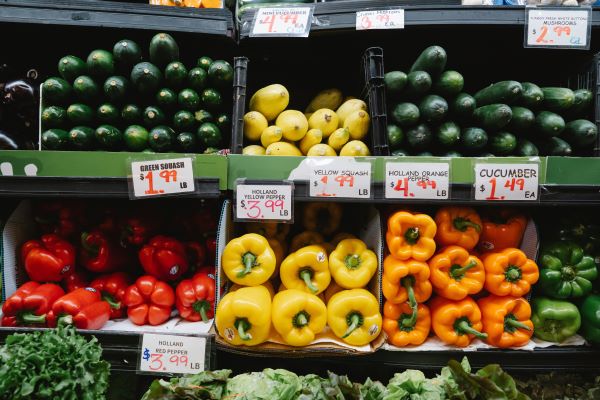It’s another Saturday morning. My father is preparing for another session of the Human Values class he teaches. As always, I am curious. He tells me this week’s topic is food wastage and sends me off to watch a TED talk on the food wastage scandal by Tristram Stuart. The seed is planted.
I don’t fill my plate with more than I can eat nor throw away food, so I’m wondering how wastage occurs.
Fifteen minutes into Tristram’s talk, I realize the evidence is all around me: I simply need to channel my thoughts and look in the right direction. I enjoy eating corner slices in bread loaves we bake or buy, but the sandwiches bought at a store or restaurant are never made with these end slices – they throw them out. With every made-exclusively-with-middle-slices sandwich I buy, I play to perfection my role in wasting food. When we grew bell peppers last summer, they came out in all shapes and sizes. For every two perfect peppers I pick at the grocer, there’s another discarded. Now, I’ve found a humbler, more honest assessment of my implicit role in the food wastage scandal. The seed is sprouting into a sapling.
My newfound interest gets my father’s attention, and he sends a U.K. research article on waste my way. The charts and graphs in the article boggle my mind. I see how consumption has grown much faster than the requirements of the human population. What I’ve heard all along – that food production needs to grow to feed the planet – is all false. We simply need to waste less! The sapling cries for my attention as it seeks to grow bigger, and I water it more and more.
In a matter of days, my idea of food wastage has grown from cleaning up my dinner plate to scrutinizing it for the negative impact of perfectionism. Yet, how do I spread awareness to similarly well-intentioned people and get the rest of the world to look beyond the edge of its dinner plate? The plant is set for pollination.
What do supermarkets really want? Consumers. The more we pick the vegetables that are imperfect in appearance but perfectly edible, the more we will find them on store shelves. Not to mention, eating apples, potatoes, and carrots with their peels doesn’t just reduce wastage, but is in fact, healthy as well. We can make sandwiches at home more often – and yes, we can do so with the end slices too. It is now in our collective hands to nurture the plant, and all plants, until it grows into a tree, certain to bear fruit one day – whether perfect or not.
![]()
- United States
